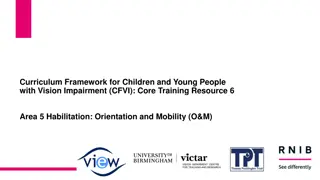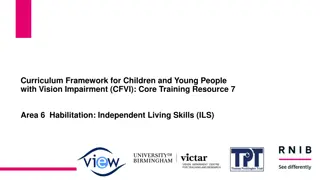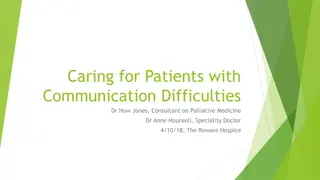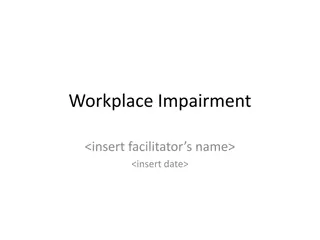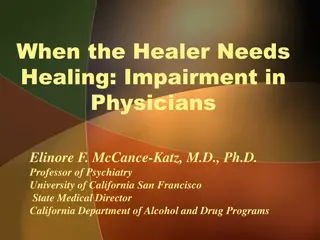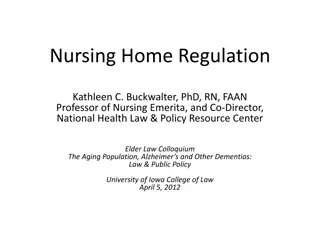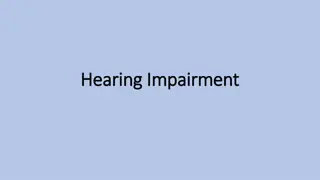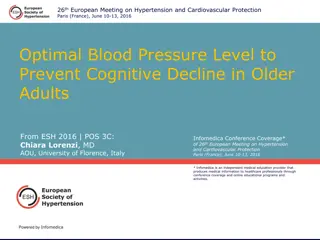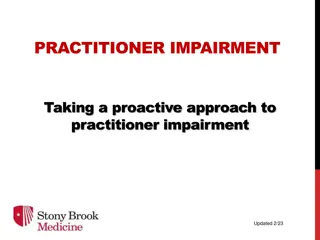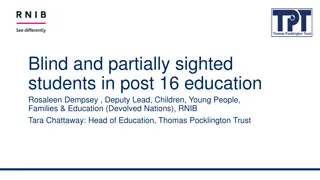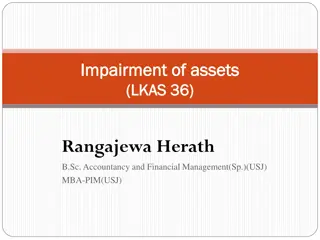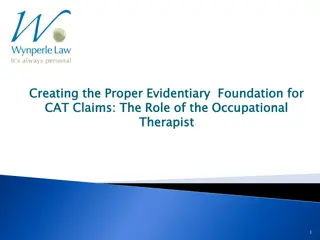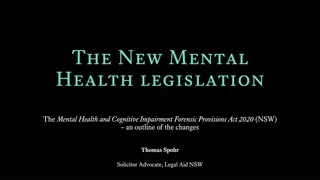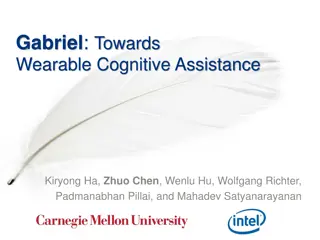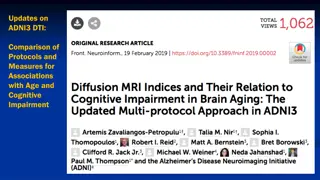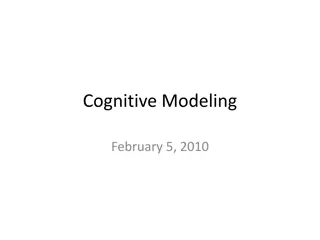Cognitive Load Classification with 2D-CNN Model in Mental Arithmetic Task
Cognitive load is crucial in assessing mental effort in tasks. This paper discusses using EEG signals and a 2D-CNN model to classify cognitive load during mental arithmetic tasks, aiming to optimize performance. EEG signals help evaluate mental workload, although they can be sensitive to noise. The
0 views • 19 slides
Brain Mineral Deposition and Cognitive Decline Study
Investigating the progression pattern of brain mineral deposition as a differential indicator of cognitive decline in individuals with varying cognitive statuses from normal to Alzheimer's disease. The study aims to develop improved imaging techniques and specific cognitive-relevant atlases to under
4 views • 24 slides
Understanding the Cognitive Assessment System (CAS2) Theory and Applications
The Cognitive Assessment System (CAS2), developed by Dr. Jane Yeomans, is a comprehensive tool for assessing cognitive processes in children aged 5 to 18. Unlike traditional IQ tests, CAS2 focuses on areas like Planning, Attention, Simultaneous, and Successive processing. It requires Level 2 qualifi
1 views • 29 slides
Curriculum Framework for Children and Young People with Vision Impairment: Habilitation - Orientation and Mobility
The Curriculum Framework for Children and Young People with Vision Impairment focuses on Habilitation: Orientation and Mobility, providing training objectives, partner organizations, and information on teaching individuals with vision impairment to navigate their surroundings safely. The resource of
0 views • 21 slides
Understanding Cognitive Behavioral Therapy (CBT) by Dr. James Ikonomopoulos
Explore the foundations and application of Cognitive Behavioral Therapy (CBT) through the work of Dr. James Ikonomopoulos. Uncover the connection between thoughts, feelings, and behaviors, learn cognitive and behavioral interventions for children and adults, and delve into the cognitive model of the
0 views • 64 slides
Habilitation: Independent Living Skills Training Resource for Children and Young People with Vision Impairment
The Curriculum Framework for Children and Young People with Vision Impairment (CFVI) provides core training resources focusing on Area 6 - Habilitation: Independent Living Skills (ILS). This resource aims to introduce the concept of habilitation, explore barriers to inclusion, and offer intervention
0 views • 20 slides
Understanding Cognitive Testing in Aging: A Vital Assessment Tool
Cognitive testing plays a crucial role in assessing cognitive abilities and distinguishing normal aging from disease states in older adults. This program, a partnership between OneWorld and UNMC's Geriatrics Workforce Enhancement Program, highlights the importance of cognitive testing, its objective
0 views • 17 slides
Introduction to Cognitive Behavioral Therapy (CBT) for Beginners
Delve into the origins, principles, and applications of Cognitive Behavioral Therapy (CBT) through an exploration of its history, theory, and practical skills. Learn how CBT targets cognitive distortions and behaviors to enhance mental health and develop coping strategies. Discover the fundamental a
0 views • 23 slides
Understanding Impairment of Assets in IFRS for SMEs - 2019
This content discusses the Impairment of Assets in IFRS for SMEs, focusing on determining the true economic benefits of assets for accurate financial representation. It covers exceptions, impairment tests, inventory valuation, and recognizing valuation/impairment losses for inventory categories. A c
1 views • 23 slides
Communicating with Patients with Cognitive Impairment and Other Communication Difficulties
This presentation highlights the causes of communication difficulties in patients, focusing on cognitive impairment, sensory impairments, and language barriers. It emphasizes the challenges of caring for these patients, including assessing pain and managing symptoms effectively. Practical strategies
0 views • 27 slides
Understanding IFRS 9 Financial Instruments & Impairment: Key Principles and Impact
Explore the key principles of IFRS 9 Financial Instruments, focusing on classification, measurement, impairment, and expected credit loss overview. Gain insights into the impact on financial statements across different stages, accounting for modifications, and identifying impairment in various finan
0 views • 12 slides
Workplace Impairment Awareness Training
Explore the concept of workplace impairment, its impact, and ways to address it in this informative presentation. Topics include identifying impairment, understanding its implications, supporting employees, and promoting a safe work environment. Engage in discussions on how impairment can affect job
0 views • 23 slides
Understanding Human-Computer Interaction and Cognitive Learning Theories
Human-Computer Interaction (HCI) focuses on how people interact with computers, while theories like Sweller's Cognitive Load Theory and Mayer's Cognitive Theory of Multimedia Learning explain how individuals process information. These theories emphasize optimizing learning by managing cognitive load
4 views • 8 slides
Cognitive Stimulation Therapy in Post-Acute Care: A Pilot Study
Cognitive Stimulation Therapy (CST) is an evidence-based group intervention designed for individuals with mild to moderate cognitive impairment. It aims to enhance cognitive functioning through various activities such as executive functioning tasks, multi-sensory stimulation, and reminiscence work.
0 views • 9 slides
Predictive Performance of CSF A1-42 and Tau on Cognitive Decline and Dementia Progression
Analysis conducted at the Perelman School of Medicine, University of Pennsylvania, evaluated the predictive performance of cerebrospinal fluid markers A1-42, t-tau, and p-tau181 on cognitive decline and progression to dementia. The study included 2401 ADNI1/GO/2 CSF samples from individuals across d
0 views • 19 slides
Cognitive Behavioral Therapy for Psychosis: Concepts and Applications
Explore the foundational principles of Cognitive Behavioral Therapy (CBT) for psychosis, emphasizing how thoughts influence feelings and behaviors. Gain insights into the cognitive-behavioral model of paranoia and learn about the main tenets of CBTp. Discover how CBTp can effectively address psychot
0 views • 63 slides
Early Childhood Language Learning and Bilingualism
Early childhood is a critical period for language acquisition and the development of bilingualism. Exposure to multiple languages from a young age has significant cognitive benefits. Bilingualism is a common phenomenon worldwide, with many individuals speaking more than one language. The cognitive i
0 views • 109 slides
Addressing Social Isolation in Seniors: Statewide Initiative
This statewide initiative focuses on addressing social isolation in seniors by identifying triggers such as geography, living alone, limited transportation, and low income. It also highlights health factors like disability, sensory impairment, cognitive impairment, along with risk factors such as ag
0 views • 15 slides
Understanding the Epidemiology of Disability and Its Impact on Health
Epidemiology focuses on studying disease causes, prevention, and control. Impairment, disability, and handicap are defined by the WHO. Impairment refers to loss or abnormality of function, disability refers to limitations in normal activities due to impairment, and handicap indicates social disadvan
0 views • 31 slides
Brain Health Messaging for Health Education: Promoting Cognitive Well-being
Evidence-based programs for older adults focus on managing health conditions that are risk factors for cognitive decline, such as diabetes, smoking, and heart disease. By incorporating cognitive health messages into promotions, individuals are encouraged to address these risk factors early to suppor
0 views • 5 slides
Understanding Physician Impairment Due to Substance Use Disorders
Physician impairment due to substance use disorders can severely impact patient safety and clinical outcomes. This article explores the definition, causes, warning signs, assessment, treatment, and return to practice protocols for impaired physicians. Substance abuse in physicians can lead to behavi
0 views • 50 slides
Understanding America Study: Cognitive Functioning Measures
The Understanding America Study (UAS) focuses on developing web-based cognitive functioning measures, including tests for fluid abilities, verbal skills, executive function, and processing speed. Utilizing data from about 9,000 panelists, tests like the Stop and Go Switch task are administered onlin
0 views • 26 slides
Nursing Home Regulation and Quality of Care for Persons with Dementia
This presentation by Kathleen C. Buckwalter discusses the regulation and quality of care in nursing homes, focusing on predictors of institutionalization, the percentage of nursing home residents with cognitive impairment or dementia, and the Medicare/Medicaid certification requirements for quality
0 views • 42 slides
Understanding Hearing Impairment and Its Impact on Education
Hearing impairment, whether permanent or fluctuating, can adversely affect a child's educational performance. In the educational context, terms like deafness, hard of hearing, and hearing loss are used instead of hearing impairment. Eligibility criteria for special education services under IDEA requ
0 views • 11 slides
Optimal Blood Pressure Levels to Prevent Cognitive Decline in Older Adults
Observational study at the 26th European Meeting on Hypertension suggests maintaining high-normal levels of systolic blood pressure between 130-145 mmHg may reduce cognitive decline and mortality risk in older adults. The complex relation between blood pressure and cognitive impairment is explored,
0 views • 9 slides
Understanding Physician Impairment and Addiction Risks
Physician impairment due to mental illness, physical conditions, or substance abuse is a serious concern in the medical field. This article discusses the definition of impairment, signs of professional misconduct, and statistics related to substance use disorders among physicians. It emphasizes the
0 views • 21 slides
Workshop on Supporting Blind and Partially Sighted Students in Post-16 Education
This workshop aims to address barriers faced by students with vision impairment, focusing on necessary skills for post-college life and available support for positive transitions. Topics covered include curriculum framework, maximizing educational opportunities, transitioning to future endeavors, an
0 views • 23 slides
Addressing Cognitive Dysfunction in Patients with Cancer: Causes, Impact, and Treatment
Understanding cognitive dysfunction in cancer patients is crucial for improving quality of life and medical outcomes. This article explores the background, causes, screening, diagnosis, and treatment options for cancer-related cognitive impairment, emphasizing the historical perspective, prevalence,
0 views • 60 slides
Master Programmes in Artificial Intelligence for Human-Centric AI Careers
Explore the world of Cognitive Systems and Cognitive Programming for Human-Centric AI at the University of Cyprus. Delve into building systems that think and behave like humans, learn from experiences, and adapt to changing circumstances. Discover the ethical considerations of Cognitive Systems and
0 views • 17 slides
Understanding Impairment of Assets in Financial Management
Entities must periodically test for impairment to ensure assets are not overstated. An impairment loss occurs when an asset's carrying amount exceeds its recoverable amount. Assets like inventories and deferred tax assets may require testing. Learn when to undertake impairment tests, key indicators,
0 views • 19 slides
Understanding Cognitive Disorders in Psychiatry: A Comprehensive Overview
Cognitive disorders disrupt higher brain functions, impacting memory, attention, and decision-making abilities. This article explores the classification of cognitive disorders, focusing on delirium, a common syndrome characterized by consciousness disturbance and cognitive changes. Delirium predomin
0 views • 26 slides
Enhancing Cognitive Flexibility for Employability
Cognitive flexibility is a crucial skill for adapting to new situations and problem-solving in today's competitive job market. This module focuses on identifying, assessing, and enhancing cognitive flexibility to nurture competitiveness and employability. Learn how to recognize the importance of cog
0 views • 24 slides
Impact of Yoga on Cognitive Functioning in Aging Adults
Aging is often accompanied by a decline in cognitive functions, affecting areas such as memory, attention, and reasoning. This article explores the relationship between aging and cognitive impairment, along with various treatment options including drug therapy, dietary interventions, and cognitive e
0 views • 42 slides
The Role of Occupational Therapists in Establishing Evidentiary Foundation for Catastrophic Impairment Claims
Exploring the pivotal role of occupational therapists in creating a solid evidentiary foundation for catastrophic impairment claims, this content delves into a case study involving Mrs. Mujku, highlighting the significance of proper assessments and expert opinions. The narrative showcases the challe
0 views • 15 slides
Evolution of Cognitive Counseling and Aaron T. Beck's Contribution
In the historical context following World War II, a shift occurred in psychology towards cognitive counseling with the emergence of cognitive therapy by Aaron T. Beck. Beck, a psychoanalytically trained psychiatrist, challenged traditional psychoanalytic concepts and developed cognitive therapy to t
0 views • 26 slides
Overview of the New Mental Health Legislation in NSW 2020: Changes and Implications
The Mental Health and Cognitive Impairment Forensic Provisions Act of 2020 in NSW brings about significant changes in mental health legislation. The act, outlined by Thomas Spohr from Legal Aid NSW, covers topics such as fitness, special hearings, and mental illness defense. It discusses the backgro
0 views • 43 slides
The Relationship Between Cognitive Flexibility and Psychological Flexibility After Acquired Brain Injury
This study explores how cognitive flexibility and psychological flexibility interact after an acquired brain injury. It examines whether individuals who exhibit cognitive inflexibility can achieve psychological flexibility, considering the impact of cognitive impairments post-injury. Cognitive flexi
0 views • 21 slides
Advancements in Wearable Cognitive Assistance Technology
This presentation explores the potential of wearable technology in aiding cognitive decline, such as mild cognitive impairment and survivors of stroke. It delves into how wearable devices can continuously capture, interpret, and give guidance to users, potentially saving millions of dollars in healt
0 views • 25 slides
Insights into DTI and Advanced MRI Measures for Cognitive Impairment
Comparison of DTI protocols and measures in 317 participants revealed strong associations with age and cognitive impairment. MD and TDF-FA emerged as best measures, with robust connections to age. NODDI in advanced MRI allows for differentiation of A-beta positive and negative groups, offering great
0 views • 6 slides
Understanding Cognitive Modeling in Learning Sciences
Cognitive modeling is a key aspect of simulating human problem-solving and mental processes in computerized models. It involves the use of various types of cognitive models, such as production-rule systems and constraint-based models, to predict human behavior and performance on tasks. This field en
0 views • 83 slides



